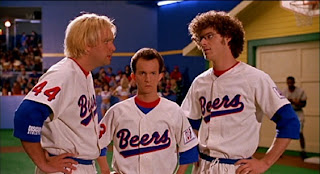As I have previously pointed out, I am a great admirer of the work of Werner Herzog. And while he hasn’t exactly changed tack over the last few years, his recent documentary filmmaking has been especially impressive. Documentaries such as Grizzly Man and Encounters at the End of The World approach perfection in the form, striving as they do for Herzog’s idea of “ecstatic truth” and the essence of the human soul. The director’s latest documentary, Cave of Forgotten Dreams, may appear slightly different, yet has, in fact, the very same objective.
Through good fortune and reputation, the director had the chance to make a film about the cave paintings of the Chauvet Cave in southern France – the oldest known examples of prehistoric art, made roughly 32,000 years ago. Discovered in 1994 after remaining sealed for millennia, access to the public has always been completely restricted, given that human breath can cause mould to grow on the paintings. True to type, with a crew of only four people permitted, Herzog decided to make a 3D film, in order to make the viewer’s experience and appreciation of the cave more real. So, combining this footage with interviews with scientists and experts, he attempts to provide some sort of background and reason for these miraculous works of art.
Though it is not always executed to perfection, the 3D element is vital to the films success: immersing you as it does in the cave environment. It also allows you to appreciate the walls’ contours and their impact on the paintings. The “serene pace” of the camera’s movement ensures the images stay with you, for they truly are some of the most striking pictures you could ever hope to see – almost too good to be true. Herzog has spoken of the “intensity of the paintings” and the “drama” which affected him; I’m happy to report none of it’s lost here.
Paintings from the Chauvet Cave
There are, of course, some typically Herzogian flourishes in the film: such as an image of Fred Astaire dancing with his shadow in Swing Time (“the most quintessential moment in cinema” according to the Bavarian), plus the superimposed sound of a heartbeat and a crazy postscript involving mutant albino crocodiles; but they all serve a purpose. For Herzog, the key to the human soul is found somewhere in the “abyss” that he sees in the cave. To enter in there is to look back to simpler times and universal truth: why the need for artistic representation? Why no pictures of man?
I should point out that while it is an incredible watch, I didn’t think Cave of Forgotten Dreams quite scaled the heights of his last two documentaries; it felt spellbinding, though slight. Whether it was because it didn’t expose the lack of meaning in life and the cruelty of the world with the trademark bleak existentialism I have come to expect, I don’t know. What I do know is that it is a film that should be seen to be believed: a necessary use of 3D. I can’t wait to see what he does next.






